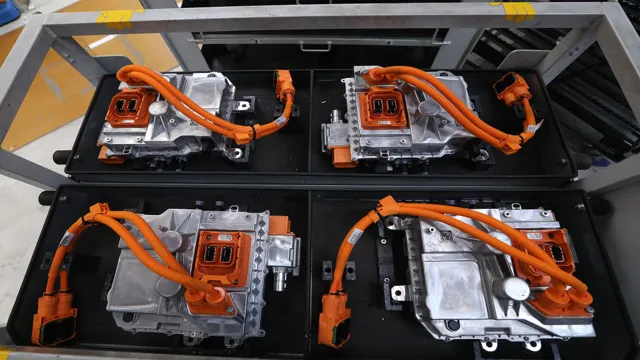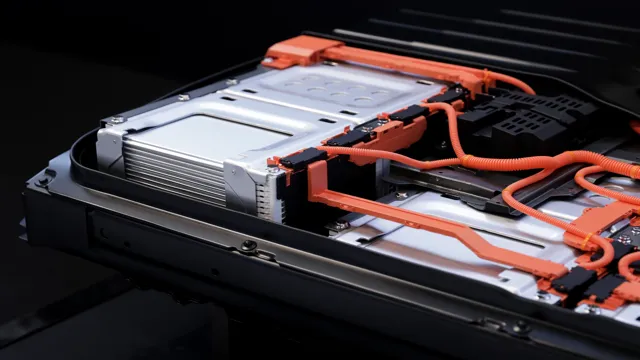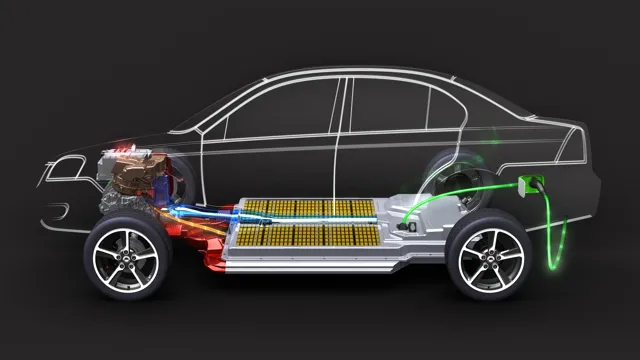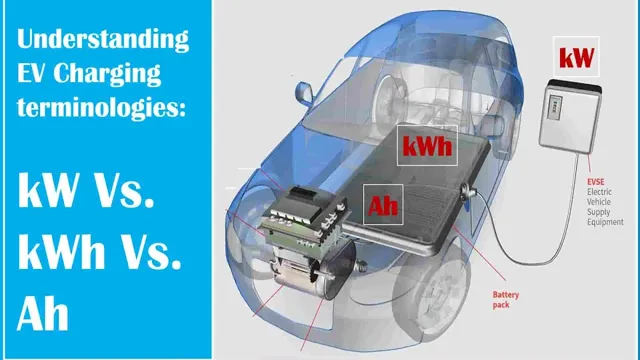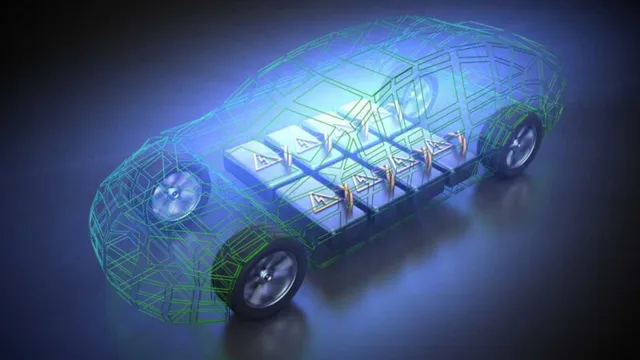The Shocking Truth About Electric Car Battery Life and Cost: How Long Will They Last and How Much Will It Cost You?
Electric cars are becoming increasingly popular as more consumers seek out environmentally-friendly alternatives to traditional gas-guzzling vehicles. One of the major concerns with electric cars, however, is battery life and cost. How long can an electric car battery last? How much does it cost to replace a battery? These are important questions that every electric car owner should know the answers to before making the switch.
In this article, we’ll explore the ins and outs of electric car batteries, including their lifespan, maintenance, and cost, to help you make an informed decision. So buckle up and let’s get started!
Battery Life
When it comes to electric cars, the battery’s lifespan and cost are two of the biggest concerns for prospective buyers. While electric car batteries generally last longer than traditional car batteries, they can still degrade over time due to factors like climate and usage. Additionally, replacing an electric car battery can be costly, potentially costing thousands of dollars.
However, many car manufacturers offer warranties on their batteries, and advancements in technology have made some batteries more durable and affordable. It’s important for consumers to do research and consider their needs when choosing an electric car, taking into account factors like battery life and cost. Overall, the benefits of electric cars – including reduced emissions and lower fuel costs over time – make them a worthwhile investment for many drivers.
The Lifespan of Electric Car Batteries
Electric car batteries have come a long way in recent years, but one of the most important factors that many people still consider is the battery life. Nowadays, electric car batteries can last for many years, but it’s important to understand that this lifespan can vary depending on many factors. For instance, the type of vehicle and driving habits can affect the lifespan.
Similarly, temperature extremes can also impact the health of the battery, especially during very cold winters or hot summers. However, automakers are always working to improve battery technology, which is a good sign for consumers. Overall, electric car batteries have the potential to last for years and provide reliable performance as long as they are well-maintained.
While it’s not uncommon for a battery to eventually lose some of its capacity over time, today’s technology ensures that it won’t happen too quickly. This will make owning an electric car a feasible and practical option for many people in the future.

Factors that Affect Electric Car Battery Life
When it comes to owning an electric car, battery life is one of the most important factors to consider. Several factors impact electric car battery life, including temperature, charging habits, and usage. Temperature is a significant factor, as extreme heat or cold can degrade the battery’s performance and shorten its lifespan.
It’s essential to park your electric car in a garage or shaded area during extreme weather conditions. Additionally, charging patterns influence battery life. For instance, frequent fast charging can damage the battery, while charging up to 80% is optimal to prolong battery life.
Lastly, your driving habits or style can also contribute to the life of the battery. If you drive your electric car aggressively or carry a heavy load, it can lead to a shorter battery life. To maximize your electric car battery life, avoid extreme temperatures, charge your car intelligently, and drive cautiously.
These simple steps will ensure you get the most out of your electric car battery and help extend its lifespan.
Ways to Extend Battery Life
Battery life is a crucial aspect that mobile phone users are always conscious of. When the battery runs out, it can be frustrating, especially if you don’t have access to a power source. Luckily, there are ways to extend battery life and get more out of your phone.
One of the simplest ways is to adjust the screen brightness and timeout settings. You can lower the screen brightness and set the screen timeout to a shorter period. Background apps and services are notorious for draining batteries.
You can close apps that you are not using or use the power-saving mode to limit the battery usage of background apps. Additionally, disabling features and services that you don’t use such as GPS and WiFi can improve battery life. Finally, replacing your battery can also help if your phone has an old battery that can’t hold a charge for long.
By implementing these tips, you can significantly extend your phone’s battery life.
Battery Cost
When it comes to electric cars, one of the main concerns for consumers is the battery life and cost. Electric car battery technology has come a long way over the past few years, with improved energy density and decrease in cost. However, the cost of an electric car battery still accounts for a significant chunk of the vehicle’s total cost.
This is because battery technology is still relatively new and needs time to become more efficient and affordable. As the technology improves and research and development continues, it is expected that electric car battery costs will continue to decrease. The current battery prices range from $125 to $300 per kilowatt-hour (kWh).
However, experts predict that they will fall to around $100/kWh by 202 The battery cost of electric cars is likely to become more accessible to average consumers in the coming years, making electric cars a lucrative and environmentally responsible option for drivers.
Average Cost of Electric Car Batteries
Electric car batteries are an essential component of modern electric vehicles. The cost of these batteries has come down significantly over the years, making electric cars more affordable. The average cost of electric car batteries is around $150/kWh, which is a significant reduction from a few years ago when battery costs were around $1000/kWh.
This decrease has been mainly due to the increase in battery production, as well as the improvements in battery technology. In fact, many automakers are now investing heavily in research and development to continue bringing down the cost of electric car batteries further. With the current trends, it is expected that electric car battery costs will continue to fall, making them even more affordable for the public.
As a result, the adoption of electric cars will continue to grow, leading to a greener future.
Factors that Affect Electric Car Battery Cost
Battery cost is one of the biggest factors affecting the price of electric cars. The battery cost is mainly determined by the type of battery used in the car, the size of the battery, and the amount of energy it can store. Lithium-ion batteries are the most commonly used batteries in electric cars, and they are known to be expensive to manufacture.
The size of the battery is another significant factor affecting the cost of an electric car. Larger battery sizes will cost more than the smaller ones because they can store more energy and provide a longer driving range. Another factor that influences battery cost is the technology used in the battery cell.
The more advanced the technology is, the higher the battery cost will be. The cost of electric car batteries is expected to decrease in the future as manufacturing processes become more efficient, and the technology improves. However, currently, electric car battery cost is still a barrier for many people to switch to electric vehicles.
Predictions for Future Battery Cost Reductions
Battery cost reduction is a key factor in the widespread adoption of electric vehicles (EVs). There is no doubt that batteries have become cheaper in recent years, and prices are expected to continue to decline with the latest advances in technology. With improvements in materials science, battery engineers can enhance the energy density and durability of lithium-ion batteries, making them better performing and longer-lasting than their predecessors.
In addition, next-generation batteries, such as solid-state batteries, could cut battery costs further by reducing the weight and space required by batteries. As technology continues to advance, experts predict that battery costs could decrease by up to 50% by 2030, making EVs more affordable to an ever-growing demographic.
Conclusion
In conclusion, when it comes to electric car battery life and cost, there is no one-size-fits-all answer. Much like a relationship, it requires careful consideration, compromise, and maintenance. However, with ongoing advances in battery technology and an increased focus on sustainability, the electric car revolution is showing no signs of slowing down.
So, whether you choose to invest in a long-term relationship with a high-performance battery or opt for a more affordable option, you can rest assured that you are making a positive impact on our planet while also enjoying a smooth and exhilarating ride. After all, in the ever-changing landscape of modern transportation, it’s always important to keep the spark alive between you and your battery! “
FAQs
What is the average lifespan of an electric car battery?
The average lifespan of an electric car battery is around 8-10 years or 100,000-200,000 miles depending on the make and model.
How much does it cost to replace an electric car battery?
The cost to replace an electric car battery varies depending on the make and model, but it can range anywhere from $3,000 to $10,000.
Can an electric car battery be recycled?
Yes, electric car batteries can be recycled. In fact, the materials in the batteries, such as lithium, cobalt, and nickel, can be reused in new batteries or other products.
What factors can affect the lifespan of an electric car battery?
Several factors can affect the lifespan of an electric car battery, including usage habits, temperature, charging frequency, and the make and model of the vehicle.
